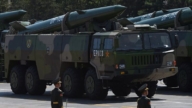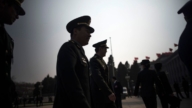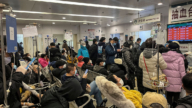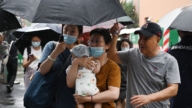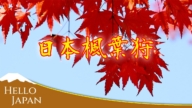【新唐人2014年05月07日訊】在「5.4」這個敏感的日子,中共總書記習近平拜訪了「五四運動」的發源地——北京大學。在「北大」,習近平勉勵學生繼續保持與堅守「五四運動」 的革命運動精神。不過,「北大」還是「八九學運」的發源地,習近平在那裏也會見了支持「八九學運」的老教授。請看以下報導。
在「五四青年節」當天,習近平除了與「北大」學生互動之外,他的另一項活動也引起了人們的關注。
中共新聞聯播是這樣報導的:「4日,總書記來到北大人文學苑,會見了87歲的著名哲學家湯一介。」
但是,官媒有意省去湯一介曾經參加「八九學運」的背景。
「八九學運」十大事件中,其中一件是詩人北島牽頭,由33名中國知名知識界、文化界學者和作家簽名,要求中共釋放魏京生等政治犯。簽名者中就有湯一介。
1994年,四十多位中國的知名學者和作家,再次聯名簽署發起了「紀念聯合國寬容年」的公開信,湯一介又簽了名。
出生於1927年的湯一介,在毛澤東時代就受「反右」衝擊、在「文革」時受到批判,還下放到幹校勞動。1978年湯一介才被平反,1980年恢復他講課資格。
旅美中國社會問題研究人士張健:「他見湯一介的確是經過了深思熟慮的。也有其中一部分原因是想撇開和六四劊子手的這樣一個關係。另外還一種原因,我相信在民怨沸騰的時候,習近平用這種方式,似乎又給當年89六四的這幫人有一些希望。」
今年是「六四慘案」25週年,海內外都在籌備這個重要的紀念日。
《美國之音》指出,今天的中共高幹,包括「六四」當年的主要人物李鵬、陳希同都出回憶錄,都想推卸和撇開自己的責任。習近平接見參加過「八九民運」的老教授,顯然是向外界表明自己和「六四」無關。
旅美中國社會問題研究人士張健表示,如果習近平真想與「六四」劃清界限的話,就要勇於承認中共在「89六四」、「79民主牆」、「99法輪功」事件中所犯下的罪行,勇於承認。
時事評論員林子旭認為,今天的中國,中共最終需要在政治、經濟、人權等諸多問題上做一個了斷,這是歷史大勢,也是誰都無法抗拒的。
時事評論員林子旭:「現任中共高層面臨的境遇,很像很多投資房產的商家,該出手時不出手,等到房地產徹底崩盤的時候一切就都晚了。」
正在給習近平寫第九封公開信的秦永敏表示,中共要想避免未來被大清算,避免社會大動盪,最低必須對公民提供「人身權利保障、財產權利保障和言論權利保障」。
秦永敏指出,如果習近平能夠因勢利導,拿出具體行動促成中國社會的轉型,那麼他就會成為歷史的偉人。
秦永敏:「從歷史的角度來看,一個國家領導人,特別是在社會大動盪的時候,他的迴旋餘地是很有限的。他想倒退也走不太遠,因為有很多因素制約﹔那麼,如果他想有所作為,那麼倒是可以有很多機會。」
張健認為,還政於民、進行普選,讓多黨執政,這是習近平應該做的事情。這樣習才能與中共這架邪惡的戰車脫離,才會在歷史上有一個好位置。
採訪/朱智善 編輯/宋風 後製/舒燦
Xi Jinping Side Steps The June Fourth Massacre by Shaking the
Hand of then Participant
Chinese Communist Party (CCP) General Secretary Xi Jinping
visited Peking University, the 1919 May Fourth Movement
birthplace.
Xi encouraged the students to insist on and adhere to the spirit
of the revolutionary May Fourth Movement.
Peking University is also the birthplace of the 1989 student
movement, Xi Jinping met a senior faculty member
who was a supporter
of the 1989 student movement.
The following is our report.
On the Youth Day, Xi Jinping interacted with students at
Peking University.
However, his other activity also drew attention.
Mainland media reported that Xi visited the 87-year-old
Tang Yijie, a philosophy scholar of Peking University.
After shaking hands with Tang, Xi spoke with Tang in his study
and praised his contribution to the inheritance, development
and innovation of traditional Chinese culture.
However, the media have intentionally omitted Tang Yijie’s
role in the 1989 student movement.
During the 1989 student movement, poet Bei Dao had led 33
Chinese intellectuals demanding the release of political
prisoners including Wei Jingsheng.
Tang Yijie was one of the participants.
In 1994, more than forty well-known Chinese scholars and
writers jointly launched an open letter to commemorate the
United Nations Year for Tolerance.
Tang Yijie once again was one the participants.
Tang Yijie was born in 1927.
He was subject to Mao Zedong’s anti-rightist movement
during the Cultural Revolution.
He was sent to the cadre school for labor education.
Tang Yijie was finally rehabilitated in 1978, and resumed
his lecturer position in 1980.
Zhang Jian, China’s social problems researcher: “His meeting
with Tang Yijie was definitely thoroughly thought through.
He might want to cut his relationship with the murderers of
the June 4 Massacre.
Another possibility is that Xi Jinping seems to provide some
hope to the victims of the 1989 student movement at the time
of much grief in society."
This year marks the 25th anniversary of the June Fourth
Massacre, commemorated by people both at home and abroad.
Voice of America reported that many senior cadres such as
Li Peng and Chen Xitong have published memoirs trying to
evade their responsibilities for the June 4 massacre.
Xi Jinping’s visiting the senior professor who was a
participant of the 1989 student movement was obviously to
demonstrate his irrelevance to the incident.
Chinese social problems researcher Zhang Jian indicates that
for Xi Jinping to cut clean with the June 4 Massacre, he must
recognize and admit the crimes the CCP has committed in
the 1989 student movement, the 1979 Democracy Wall, and
the 1999 Falun Gong persecution.
But in reality, Zhang Jian points out that Xi Jinping has been
holding on to Mao Zedong on one hand and trying to create
a friendly image on the other.
He’s trying to please both the left and the right.
Chinese human rights activist Qin Yongmin believes that
Xi Jinping’s bottom line has been to save the CCP and its
rule in China.
Qin Yongmin, Human Rights in China founder: “He proposed
the Eleven Safety.
The first and foremost safety is political security.
To him, political security demands no subversive political
reform. That is to insist on the CCP’s leadership."
Commentator Lin Zixu believes that today’s China is faced
with a historical trend that no one can resist.
That is the CCP must face the issues of politics, the economy,
human rights and many others.
Linzi Xu, commentator: “The CCP leadership is faced with
a situation similar to the real estate investors.
When it’s time to sell, sell.
Otherwise, once there’s a real estate meltdown, it will be too late."
Qin Yongmin is writing his ninth open letter to Xi Jinping.
He indicates that to avoid liquidation and social upheaval,
the CCP must provide the minimum protection of personal
rights, property rights and speech rights.
Qin Yongmin believes that if Xi Jinping can make the best use
of the current situation and promote the transformation of
Chinese society, then he will make a name for himself in
history.
Qin Yongmin: “From a historical perspective, for a national
leader, especially in the time of social upheaval, his room for
maneuver is very limited.
He can’t back down too much because of many restricting
factors. However, there are many opportunities if he intends
to do something."
Zhang Jian believes that to return the government to the people,
conduct universal suffrage, and multi-party rule, are what
Xi Jinping should do.
That’s how Xi can jump off the CCP evil chariot and
reposition himself in history.
Interview/Zhu Zhishan Edit/Song Feng Post-Production/Shu Can


